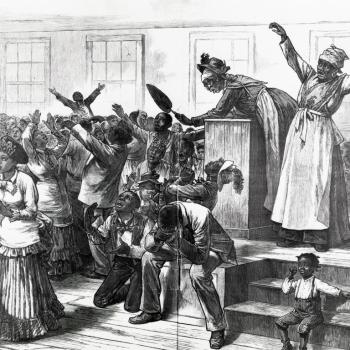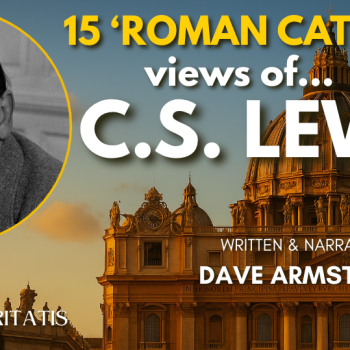If creation tells of God's glory, it should not be used and abused. It is part of God's self-expression. And if each creature praises God, each creature we destroy cannot offer that praise.
Psalm 24:1. The earth is the Lord's and all that is in it, the world, and those who live in it.
The earth does not belong to us, and although God has granted us dominion, and asked us to till and keep the earth, it ultimately belongs to God, and our role should be to bring out God's purpose for it.
Isaiah 11: 6, 9. The wolf shall live with the lamb, the leopard shall lie down with the kid, the calf and the lion and the fatling together, and a little child shall lead them. They will not hurt or destroy on all my holy mountain; for the earth will be full of the knowledge of the Lord as the waters cover the sea.
In this verse in Isaiah, the vision of the end of time is that there will be peace between all creatures, even those whose nature seems to be killing and eating. This is the picture of fulfillment of God's will for creation.
Romans 8:22. We know that the whole creation has been groaning in labor pains until now; and not only the creation, but we ourselves, who have the first fruits of the Spirit, groan inwardly while we wait for adoption, the redemption of our bodies.
Not only human beings, but all of creation, according to this verse, in body and spirit will be redeemed at the end of time. Radical animal theologian Andrew Linzey argues that this and other biblical texts (Colossians 1:20; Ephesians 1:9-10) hint at a cosmic reconciliation of all creation with God. This means that we are called to attempt to actualize this transformation in whatever ways we can here and now, including perhaps not killing and eating animals.
Questions for Reflection
1. Our distance from the environment. Sallie McFague, a Christian environmentalist and feminist, points out that we cannot love what we don't see. She mourns the fact that some children do not have experiences of nature in their daily lives. Even the city park, she insists, is a place for us to get in touch with nature, to see the teeming life right under our feet, and to enjoy the wonder of creation that is not of our own making. Does our distance from nature, and from the animals we consume on a daily basis, make it difficult for us to appreciate and love God's creation? What would help reconnect us with creation and our place in it?
2. Stewardship. How can we discern what might be the "proper" use of creation for human purposes, and where do we draw the line? How do we balance the inherent value and purposes of each living thing with our own need to make use of the earth for survival? And how responsible are humans for the extinction of species because of unintended consequences of human development and population growth?
3. Eating Animals. Although in Genesis 1 God gives humanity every plant for food, after the Flood in Genesis 9: 3, God says this: "Every moving thing that lives shall be food for you; and just as I gave you the green plants, I give you everything." What do we make of this? It is only after humanity had fallen from grace, and become so evil that God had to send a flood to destroy us, that God grants us the use of animals for food. Does this mean anything for the vegetarian/non-vegetarian argument?
4. Eschatology. If all creation groans for redemption, and if God intends to bring about "a new heaven and a new earth" (Rev. 21:1), and if we are stewards of God's earth, what is our responsibility in helping to bring about God's will for creation? Should we be attempting to live by the future vision of the peaceable kingdom now?
Resources
Coward, Harold and Daniel C. Maguire, eds. Visions of a New Earth: Religious Perspectives on Population, Consumption, and Ecology. Albany: SUNY Press, 2000. This book offers perspectives from eight religious traditions on the issues of the ecological crisis, overconsumption, and overpopulation.
Linzey, Andrew. Animal Theology. Chicago: University of Illinois Press, 1994. Linzey argues for a view of animals that places them on par with humanity, and as, in fact, "the least of these" about whom we should be primarily concerned.
McFague, Sallie. Super, Natural Christians: How We Should Love Nature. Minneapolis: Fortress Press, 1997. This is a call to reorient our vision and life from a perspective of Christian spirituality where all of creation is valued in its own right.
Santmire, H. Paul. Nature Reborn: The Ecological and Cosmic Promise of Christian Theology. Minneapolis: Fortress Press, 2000. This excellent book takes theological themes such as cosmology, Christology, creation, and the Eucharist and interprets them in light of the global economic crisis, calling us to love nature in practical ways.
http://alanmarshall.org/essays/christians&environment.htm
This website is a similar overview of biblical verses interpreted environmentally.
http://www.creationcare.org/resources/sunday/adult.php
This website has a list of study resources from the Evangelical Environmental Network.
*All biblical passages were quoted from The New Oxford Annotated Bible, with the Apocrypha, New Revised Standard Version, New York: Oxford University Press, 1991.




